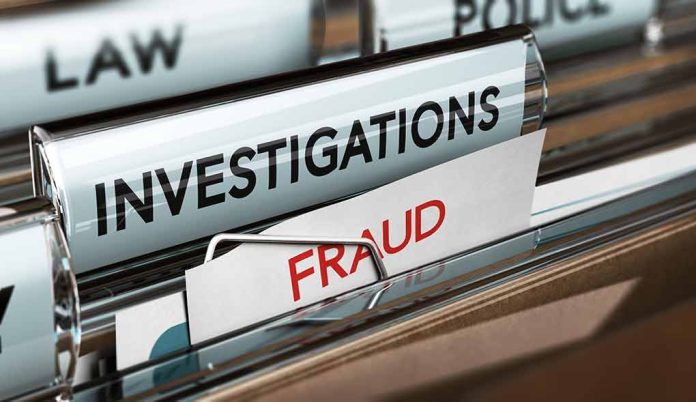
Iowa Representative Miller-Meeks introduces critical antisemitism commission bill as Anti-Defamation League reports a staggering 344% increase in antisemitic incidents across America over the past five years.
Key Takeaways
- Rep. Mariannette Miller-Meeks proposes a bipartisan commission to study the causes of antisemitism with powers to hold hearings and issue subpoenas.
- The commission would consist of eight congressionally appointed members with balanced political representation and would dissolve 120 days after submitting its report.
- The House recently passed the Antisemitism Awareness Act with a 320-91 vote, adopting the International Holocaust Remembrance Alliance’s definition of antisemitism for education institutions.
- The initiative follows disturbing incidents, including a fatal shooting near the Capital Jewish Museum and widespread reports of Jewish students feeling unsafe on college campuses.
- The Anti-Defamation League has documented a 344% increase in antisemitic incidents over the past five years.
Bipartisan Commission to Combat Rising Antisemitism
Republican Representative Mariannette Miller-Meeks of Iowa is taking bold action against the alarming rise of antisemitism in America through proposed legislation that would establish a dedicated study commission. The bill calls for an eight-member bipartisan panel appointed by congressional leaders to investigate the root causes of increasing hatred toward Jewish Americans. The commission would have significant authority, including powers to hold hearings, issue subpoenas, and obtain information from government agencies during its one-year investigation period before presenting comprehensive findings to President Trump and Congress.
“First and foremost, assert the awareness that the issue exists and acknowledgment that antisemitism acts have been on the rise, and this most recent one [the fatal shooting of a couple outside a Jewish museum in Washington, D.C., I think, underscores the need for an overview,” said Rep. Mariannette Miller-Meeks.
The initiative emphasizes factual, non-partisan assessment of the situation. The commission would be structured to ensure political balance, with no more than four members from the same party. House leadership would determine the chairperson and vice chairperson positions. After submitting its report, the commission would dissolve within 120 days, having fulfilled its investigative purpose and provided actionable recommendations for addressing antisemitism in America.
I’m proud to announce I’m introducing a bill to establish a national commission to study the rise of antisemitism in the U.S.
We must face this crisis head-on with facts, action, and bipartisan resolve.
Read more in @DailySignal: https://t.co/kOVZESwx31
— Rep. Mariannette Miller-Meeks, M.D. (@RepMMM) June 2, 2025
Recent Legislative Action Against Campus Antisemitism
Miller-Meeks’ proposal comes on the heels of the House passing the Antisemitism Awareness Act, which seeks to address escalating antisemitism on college campuses. The bill passed with strong bipartisan support in a 320-91 vote, though 70 Democrats and 21 Republicans opposed it. This legislation adopts the International Holocaust Remembrance Alliance’s definition of antisemitism for enforcing federal anti-discrimination laws in education, providing clearer guidelines for identifying antisemitic conduct in academic settings.
“Right now, without a clear definition of antisemitism, the Department of Education and college administrators are having trouble discerning whether conduct is antisemitic or not, whether the activity we’re seeing crosses the line into antisemitic harassment,” said Rep. Mike Lawler.
The definition encompasses various manifestations of antisemitism, including collectively blaming Jews for the actions of individuals and perpetuating stereotypical allegations. The bill extends beyond a 2019 executive order signed by President Trump, though some lawmakers have expressed concerns about potential free speech implications. Democratic Representative Jerry Nadler noted that the definition might inadvertently include protected speech, particularly regarding criticism of Israel, while others dismissed such concerns.
Growing Crisis on College Campuses
The legislative push comes amid increasing reports of Jewish students feeling threatened on campuses across the nation. House Speaker Mike Johnson recently visited Columbia University to meet with Jewish students who described harassment and safety concerns. Some students reported being advised to leave campus entirely for their protection. These troubling developments highlight the urgent need for concrete action, with lawmakers emphasizing the importance of listening to Jewish students’ experiences and ensuring their safety in educational environments.
“It is not an issue that is relevant to only Republicans. There’s a lot of support across the aisle,” said Rep. Mariannette Miller-Meeks.
The Anti-Defamation League’s data underscores the severity of the situation, reporting a shocking 344% increase in antisemitic incidents over just five years. This dramatic rise serves as the backdrop for Miller-Meeks’ proposal, which aims to provide factual data on antisemitism’s increase and create educational opportunities for local officials and faith communities. Additional legislative proposals include placing monitors on campuses to ensure compliance with Title VI, which prohibits discrimination in federally funded institutions.
A Unified Approach to a Growing Threat
Miller-Meeks’ legislation represents a crucial step toward addressing antisemitism through factual analysis rather than partisan positioning. The commission would examine the causes of antisemitism without predetermined political findings, focusing instead on gathering accurate data to inform effective policy responses. This approach has garnered support from across the political spectrum, with House Minority Leader Hakeem Jeffries backing the bipartisan Countering Antisemitism Act, which would establish roles to monitor and counter antisemitism in education and government.
“There’s a false narrative that the definition censors criticism of the Israeli government. I consider it complete nonsense,” said Rep. Ritchie Torres.
As antisemitic incidents continue to rise nationwide, from college campuses to deadly violence like the recent shooting near the Capital Jewish Museum, the need for comprehensive action becomes increasingly apparent. Miller-Meeks’ proposed commission would provide the factual foundation for targeted interventions, potentially leading to more effective strategies for combating hatred against Jewish Americans. With strong bipartisan support, the initiative demonstrates a rare moment of unity in addressing a dangerous and growing threat to American society.



